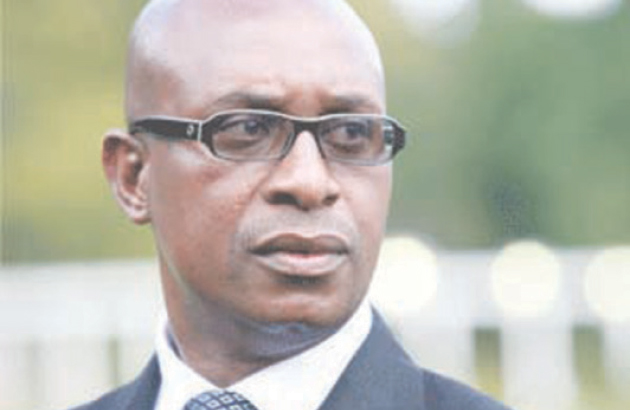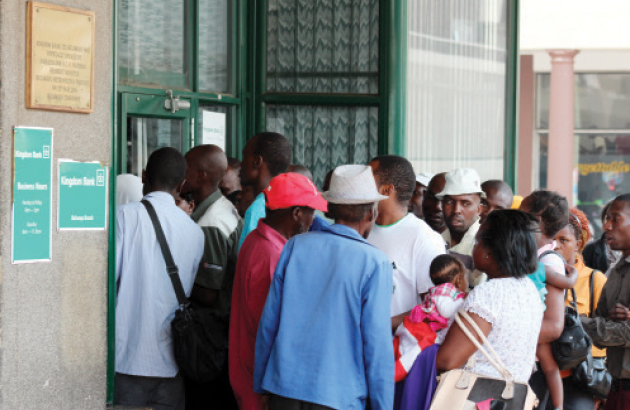Zanu-PF and nationalism

Reason Wafawarova
IF there are any political parties in Africa known for nationalism today, certainly Zanu-PF would be counted among them. It is a party founded on nationalism, rooted in the liberation legacy that brought us national independence, and has a contemporary image synonymous with the revolutionary land reform programme, as well as the contested but highly popular indigenisation policy.
However, there is this worrying trend of delivery failure on the part of the ruling party. Zanu-PF is notorious when it comes to policy implementation, much as the party has an unparalleled expertise in policy formulation — crafting highly impressive policies that can win any election in the developing world at any time.
Amos Wilson argues that a true nationalist is not obsessed with the past, and does not exclude the present. There are people in Zanu-PF or affiliated to it who have in the past come out publicly declaring that only the past as manifested through our liberation struggle legacy really matters when it comes to the political affairs of our country.
The liberation struggle is indeed our heroic past that no one should ever demean or belittle. However, the past cannot in itself be the certification used by heroes of yesteryear to claim entitlement to benefits of the present, or any form of political supremacy.
True nationalism says the past must project into present time consciousness. Our past must create in the present generation a sense of consciousness, but we have today young people who deride and vilify the country’s political history because they feel disfranchised. Blaming these youngsters as traitors or reactionaries is a very simplistic way of looking at issues.
We cannot wish away the fact that our country has a thorough going concern in regards to the present and the future. We have so many unanswered questions with regards to our economy, our politics, our religion, and indeed our social fabric.
Our politicians must be guided by the reality that there is a need to secure the survival and advancement of Zimbabwean people. We cannot build the country on consumerism, with our business people specialising in flooding the local market with goods produced in Asia and Europe.
While it is the epitome of disgrace for a woman to move around with fake hair in Europe, we have developed a society where fake hair is a symbol of status, and we have helped make the Asian hair industry a billion dollar enterprise. None of our own entrepreneurs even bothers to at least make the disgraceful product locally, so we can console ourselves that it is building our economy.
We have no known plan on how we intend to survive in the era of a rising Asian civilisation, and just like the European civilisation turned us into enslaved consumers, the Asian civilisation will also enslave our children and us.
The fault is entirely our own. We simply do not have a survival plan, and we have no known developmental strategy that is designed to ensure innovation and production capacity. Are we not stranded because the Indians are not moving fast enough to revive Zisco?
A true nationalist is not paralysed by fear. He is by definition, a man of courage. But courage is different from loud political rhetoric. Courage means operating into success in spite of fear. Success involves the collective happiness of a nation, and it is the role of any government to ensure that there are sustainable opportunities to enable people to create for themselves happy lives.
There is no doubt that a revolutionary who is an intrepid man leads Zanu-PF. He operates in spite of fear. He is energised whenever he is confronted with a fearful situation, and just about the whole world is well aware of his character, especially after the gruelling Zimbabwe-West diplomatic war of the last decade.
The question that requires a speedy answer is how many true nationalists surround the person of Robert Mugabe? The current fighting within Zanu-PF reveals that the man is to a worrying extent, surrounded by personalities of legendary pretences, men and women who hide their fear behind high sounding sloganeering and revolutionary rhetoric. These are people who have no qualms dredging up the past to attain political victory over their opponents.
Fortunately, Zanu-PF has super easy opponents in the highly disjointed MDC formations, totally void of ideology and highly unfamiliar with policy. Add to that the opposition’s treacherous hankering for support from countries with imperial interests and you have a huge political bonus for Zanu-PF.
Our past must be used as a means to integrate our history into character and personality for today’s people. How does anyone bragging of a heroic liberation history get involved in corruption without making a perfect fool of himself? Our war veterans and liberation war heroes must be men and women of honour — their character and personality being a direct product of a noble past. It is hard to believe that an ideology that fell the colonial empire can be the same ideology that fails a people’s economy today, even with Western sanctions at play.
This ideology gave us the mass education pride of the eighties, the infrastructure development of the same era, the expansion of the health delivery system, and the booming mining industry of the time.
Those who argue that the glories of the eighties and the nineties are nothing but the last stages of a dying Rhodesian economy are not only overstating the strength of Ian Smith’s economy, but also understating the hard work and visionary aspirations of our politicians in the founding government of the country.
There was a lot of planning involved at the time, and our ministers at the time competed to showcase success stories on national television, not superlatives expressing high-sounding complex political rhetoric.
Zanu-PF must forget about the MDC in all its formations. The people of Zimbabwe have had enough politics, and they know for a fact who the political champions of the country are. Zanu-PF is the country’s indisputable political force, but the country needs a lot more than mere political champions. It needs champions at building the country’s economy.
If Zanu-PF wants to be identified with the nationalism it preaches then the party has to focus on securing the future of the nation. We hear there are A2 farms that are lying idle while their owners are content with the status of hypothetically owning a farm, and this is a good 15 years after that land was distributed. Does that make a lot of sense on the part of those responsible for the land distribution process?
It is indeed an honourable thing to identify with our liberation war, but surely that alone cannot be evidence that one is patriotic enough to carry our country forward, or that one is knowledgeable enough to assume leadership over the rest.
We see people hunting for detail about the heroics of the past, but that in itself will not ensure a bright future for our people. We want a leadership that understands the needs of the people, not only the heroic history from which our people hail. It is like people who argue that Africans are great people because of the pyramids in Egypt, or that we Zimbabweans are great people because of the Great Zimbabwe historical monuments.
A good history must by definition give birth to a good future. We have heard people like Mutambara articulating the importance of value addition to our raw materials, but such discussions are very unattractive to our media and our politics. We would rather focus on the dramas of elections and endless by-elections, caused by the death of incumbent office holders in rare circumstances, and by breathtaking confusion in most of the cases.
The MDC has just created more than a dozen seats for an unplanned by election, all because of childish infighting so consistent with African politics. These are supposed to be the opposition guys checkmating the performance of Zanu-PF, keeping the ruling party on its toes.
Obert Gutu is busy reading petty news in the equally frivolous media, and posting infantine “press statements” in the name of MDC spokesman. What is most important for him when the Head of State attends a UN forum are not the policy issues under discussion, but who is sitting next to the President, and he is prepared to do a whole press statement just on that.
The President must step down, not because Gutu has spotted any policy failures in his governance, but because he happened to mention the word “tired” in one of his utterances. And the MDC-T believes it is a serious party.
This is the kind of opposition that makes Zanu-PF preach nationalism without any worries of following up on the actions needed to back it up.
The party knows there is no political threat, especially after the phenomenal failure of the regime-change sanctions, and also after the defining demise of the MDC formations in the 2013 elections.
If Zanu-PF is going to stick to its nationalism ethos, then its politicians must realise the momentous task that comes with sustaining nationalism. You cannot preach domestic ownership of the means of production while spend money buying foreign products for resale at exploitative prices to poor Zimbabweans. Even ancient merchants travelled to sell their own produce, not to buy and sell back home at exorbitant prices.
That is not how nationalism works. Thomas Sankara preached and practiced nationalism in Burkina Faso for four years, and Robert Mugabe made us do the same thing here for the first decade after our independence, before the IMF came in 1991 and told us how a dependency economy is run.
Zanu-PF will need to focus on building production capacity for the country, beginning with agricultural production capacity, moving to mining, manufacturing, and also perfecting our service industry.
Nationalism is not a political tool to make populism easy. It is a patriotic ideology meant to develop nations to greatness.
It is my hope that Zanu-PF will focus on making Zim-Asset improve not only the consumption side of our economy, but most importantly our production capacity. Hopefully, there is genuine political will to implement this highly publicised blueprint.
Zimbabwe we are one and together we will overcome. It is homeland or death!
● Reason Wafawarova is a political writer based in Sydney, Australia.










Comments